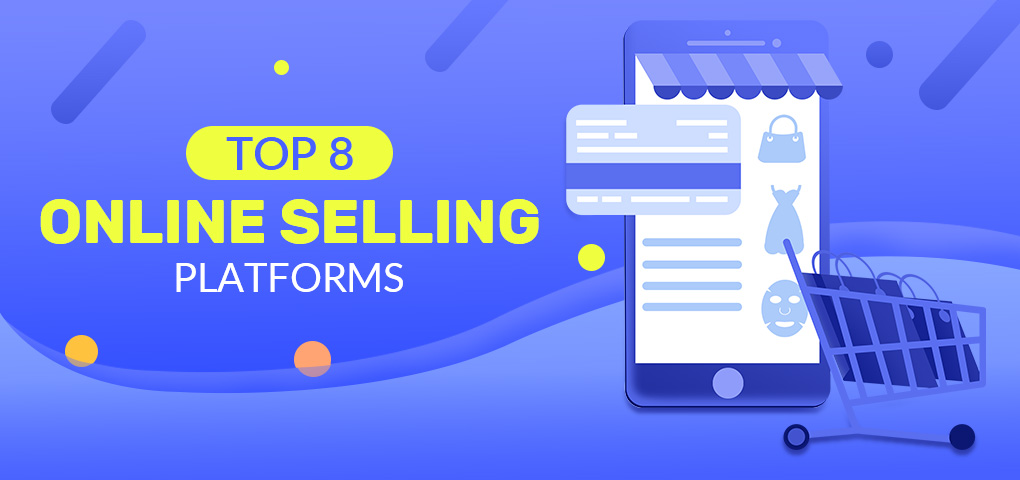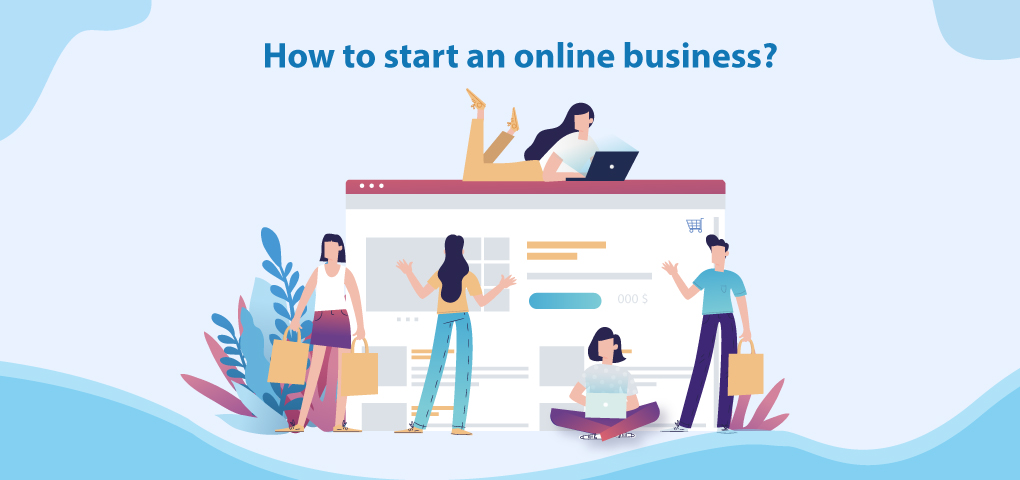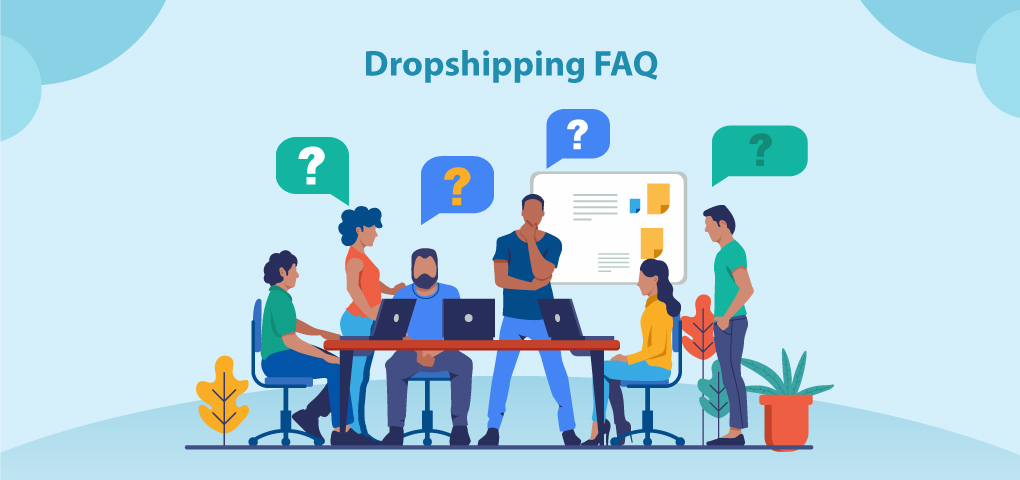Contents
- Part 1: Introduction
- Part 2: Top 8 Online Selling Platforms
- Part 3: Benefits of Dropshipping
- Part 4: Conclusion
Introduction
Selling online has evolved beyond everybody’s imagination and expectations. Back in the 80s, it was nearly impossible to sell items without owning a traditional store. Now, you don’t even need a storefront before you can sell and make huge profits. More interestingly, you don’t need to stock products before making a sale. The dropshipping business model has eliminated such stress and inconvenience, making it one of the most easy-to-startup and cost-effective online businesses. Before you get started, however, you need the best selling platforms for dropshipping business. To save you time and effort, we have compiled a list of the top 8 selling platforms for dropshipping business.
Top 8 Online Selling Platforms
Starting the dropshipping business model is easy; however, finding the best selling platforms is one of the challenges faced. There are thousands of online selling sites out there; choosing the right one can be overwhelming. Unfortunately, a lot of online retailers find themselves dealing with the wrong selling platform because they don’t know which platform suits their business best. Not to worry! An end to that has come. In this section, we will introduce the top 8 selling platforms for dropshipping business.
Are You Selling Internationally?
1. Amazon
Amazon platform is the largest e-commerce website in the world, boasting over 214.8 million visited users, according to Statista. This gigantic figure signifies that Amazon is already a trusted and established brand. Amazon advertising platform is great for those who want to sell in large quantities. There might be challenges for small business owners due to competitive pricing. Automatically, selling on Amazon means that your items are more likely to be seen by a larger audience, but it comes with a price.
Individual: you will be charged $0.99 for every item sold plus additional selling fees. This plan is ideal for those who don’t plan on selling more than 40 items per month.
Professional: you will be charged $39.99/ month plus additional selling fees. This plan will is appropriate if you plan to sell more than 40 items a month.
Pros
- Selling on the Amazon platform automatically gives you a trust seal and commands millions of audiences.
- Beneficial for large businesses.
Cons
- Monthly listing fees may be excessive for small businesses.
- Heavy product requirements from retailers.
2. eBay
eBay is one of the oldest and top online selling platforms in the world. Having established over two decades ago, it is a trusted destination to find anything and everything. From books and gadgets to furniture, electronics, health and wellness products, etc. eBay has an incredibly large network with over 182 million active buyers and 25 million sellers. Even the weirdest things can be found on eBay. The massive audience size is advantageous for selling items, however, beginners can get lost in the crowd if they are not properly guided. Like Amazon, eBay charges for using their platform. Unlike Amazon, there is less trust-base on your customers with eBay.
Insertion fees or listing fees: They charge a non-refundable fee of $0.35 for listing in most categories.
Final value fees: This fee is calculated based on the total items sold, what category it falls in, as well as shipping. For most sellers, it’s 10% or lower.
Pros
- A selling platforms like eBay boasts a massive audience base assuring visibility for your products.
- You can reach out to millions of people overseas with minimum efforts.
Cons
- Products on eBay are highly competitive.
- Bidding can be a little frustrating, and taking 10% off each sale reduces your profit margin.
3. Shopify
Shopify provides a platform for you to create your own online store to sell. They are the fastest-growing e-commerce store creators right now, having earned trust from shoppers all over the world. It is one of the best platform to sell clothes online. Shopify platform is easy-to-use, thanks to the drag-and-drop website builder feature. It also comes with excellent security and SEO tools as well as many third-party apps that can help you create a beautiful online store within 24 hours or less without any coding knowledge. However, the cost of owning a store on Shopify can drive beginners insane.
Basic Shopify: $29 per month
Shopify: $79 per month
Advanced Shopify: $299 per month
Pros
- Setting up a store with Shopify is straightforward, thanks to easy-to-use tools and features.
- No transaction or seller fee like in Amazon and eBay.
- On Shopify, you have full control over your website layout, elements, and designs.
Cons
- Charges incurred on setting up a store are enormous for a small business.
- If your business is not yet established, it may struggle to attract buyers.
4. Bonanza
Bonanza is another popular online selling platform connect that boasts over 50,000 sellers and 35 million different items. Setting up a shop on Bonanza is very easy. You don’t need to pay listing fees; you only pay fees if you make a sale.
Gold (for beginning sellers): $25 per month
Platinum (for most sellers): $55 per month
Titan (for high-volume sellers): $167 per month
Pros
- Offers reasonable fees compared to the competition.
- No listing fees.
Cons
- There is an additional 1.5% fee on transactions above $500.
Are You Selling Locally?
5. Craigslist
Craigslist is a go-to online sourcing and selling platform where sellers and buyers meet online. It was originally designed to post local listings around San Francisco Bay Area, but it has now turned into a popular marketplace for individuals and businesses.
Pros
- Craigslist is ideal for those who prefer to sell items locally and meet customers in person.
- Buying low and selling high on Craigslist can turn a pretty profit for your business.
Cons
- Craigslist has no escrow system, meaning “you are on your own”. As such, scam and fraudulent activities are rampant on Craigslist.
6. Facebook Marketplace
Introduced in October 2016, Facebook Marketplace is a new selling platform connect. Many online retailers are taking advantage of Facebook’s large community to reach out to their customers. Imagine over 2.2 billion active users visit Facebook on a monthly basis. This huge potential reach is worth looking into. Unlike Amazon, Shopify, and eBay, there are no listing fees for merchants on Marketplace, but there are specific requirements and guidelines that you must follow.
Pros
- Facebook Marketplace is perfect for beginners that want to focus on selling clothes and other items locally.
- There is no cost for listing products on Facebook Marketplace.
Cons
- Like Craigslist, Facebook Marketplace doesn’t offer protection for either buyer or seller. You buy or sell at risk.
Best Selling Platform For Homemade Goods, Art, And Vintage
7. Etsy
If you are selling homemade goods, art, antiques, and collectibles, vintage products, then Etsy is the ideal selling platform for your business. Etsy is a unique online selling platform for creative sellers to showcase their products. This online selling platform boasts over 40 million active shoppers globally and as of 2017, buyers spent over $3 billion on the site. Etsy charges a $0.20 listing fee for each product which is affordable for starters. The item stays in your shop until you sell it or for 4 months. Meanwhile, when you sell a product, you will be asked to pay 5% for the transaction fee and an additional 3% plus $0.25 processing fee.
Pros
- The listing fee of $0.20 is minimal compared to Amazon and eBay.
- Etsy is ideal for creative folks. They are recently selling digital services like web designing, etc. thereby attracting new markets.
- The platform is also easy to use and comes with amazing features like sales tools, built-in analytics, and so on.
Cons
- Competition among sellers.
- You will pay for transaction charges if customers are paying through PayPal.
8. Ruby Lane
Like Etsy, Ruby Lane is the destination where buyers and sellers of art, antiques, jewelry, vintage collectibles, meet. As of January 2019, this online selling platform received over 1.1 million unique visitors per month, which is an impressive stat. Ruby Lane seems to attract more educated buyers and collecting enthusiasts from the UK, US, Canada, Germany, and Australia who might be willing to spend more money on arts, antiques, and collectibles.
Ruby Lane charges sellers $0.19 per listing but no charge is incurred on commission. There’s also a one-time $100 incurred if you want to set up a shop with Ruby Lane. The shop fee is dependent on the number of items you have listed.
Pros
- Ruby Lane’s excellent customer support service is second to none. They are quick to resolve any issue.
Cons
- Cost for setting up a website is outrageous for beginners.
Building your online store with the aforementioned platforms can be profitable and fulfilling if done right; yet, there are several challenges. For one, you have to market your store and product by driving traffic to your site. This can take a lot of time, resources, and effort. More so, you get to pay for transaction or selling fees or even bear the risk of shipping products to your consumer. That been said, the struggle may not worth it. However, with dropshipping, you can turn your effort into profit with a minimal time consumed.
Benefits of Dropshipping
If you have a knack for selling online without having any inventory or owning a physical store or you have no budget for advertising whatsoever, then dropshipping business is your best bet. Briefly, what is dropshipping? Dropshipping is a business model whereby an online retailer (i.e. you) doesn’t have to stock any inventory or worry about shipping products. All you need is to get an order for a product (that you are interested in), you forward the order to your wholesaler and they ship it directly to your customer for you. The difference between the price that you gave to your customer and the manufacturer’s price becomes your gain. Let’s say an item costs $8 from your manufacturer, and you sell for $9.22 – your profit for that item per sale would be $1.22.
Below are some 6 benefits of dropshipping.
1. Since you’re not stocking products or shipping items, you save on time, effort, and money. You don’t have to manage a warehouse, track inventory, handle returns, and manage inventory.
2. Identifying your market makes you target specific audiences. This increases your customer base.
3. Lower capital implies reduced risks.
4. Flexibility - You can run your business anytime and anywhere as long as you are connected to the internet.
5. Dropshipping manufacturers like SaleYee.com offer a wide product selection.
6. Highly scalable and location independent.
We recommend SaleYee dropshipping platform for both beginners and expert online retailers. SaleYee.com is a global dropshipping platform that offers quality dropshipping products of over 30,000 profitable SKUs, trustworthy suppliers, excellent customer service, an easy-to-use website, and more. SaleYee.com is reliable and convenient for dropshippers and also consumers too. They have warehouses in various parts of the world which makes shopping easier and faster. Consumers and online retailers benefit from a 2-day shipping and delivery service. Start using SaleYee dropshipping platform to enjoy big discounts in every product category.
Conclusion
Selling online can be interesting; however, dropshipping provides a lot of benefits. Feel free to try out any of these options! Who knows which one might work best for your business? Depending on what you sell and what you want to achieve, it is worth checking out each option in detail.





